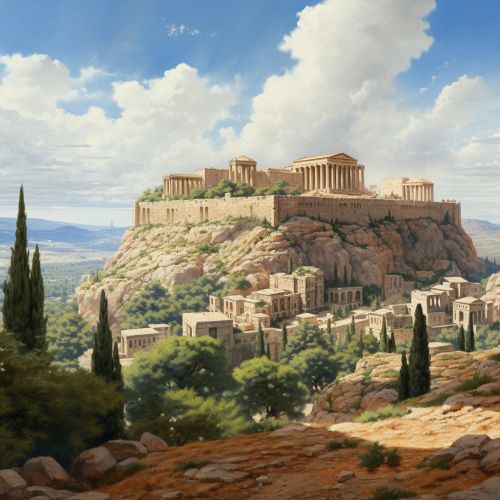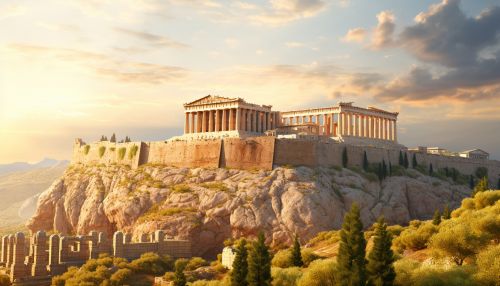Classical period
Overview
The Classical period, spanning from the 5th to 4th century BC, was a significant era in the history of ancient Greek civilization. This period is often referred to as the "Golden Age" of Greek civilization, characterized by the emergence of city-states, the establishment of democracy, and significant advancements in various fields such as philosophy, arts, and science.


Historical Context
The Classical period followed the Archaic period and was succeeded by the Hellenistic period. It was during this period that the Greek city-states, known as polis, reached their peak of economic, political, and cultural power. The two most prominent city-states during this period were Athens and Sparta, each representing different aspects of Greek society and culture.
Political Developments
The Classical period witnessed significant political developments, most notably the establishment of democracy in Athens under the statesman Cleisthenes. This period also saw the Peloponnesian War, a major conflict between Athens and Sparta, which significantly altered the political landscape of ancient Greece.
Cultural and Intellectual Achievements
The Classical period was a time of remarkable cultural and intellectual achievements. In philosophy, figures like Socrates, Plato, and Aristotle made profound contributions that continue to influence Western thought. In the arts, sculptors such as Phidias and Praxiteles and playwrights like Sophocles, Euripides, and Aristophanes created works of enduring beauty and significance.
Economic Developments
Economically, the Classical period was marked by the growth of trade and the use of coinage. The Athenian silver drachma became the dominant currency in the Greek world, facilitating trade and commerce.
Decline and Legacy
The end of the Classical period was marked by the defeat of Athens in the Peloponnesian War and the subsequent rise of Macedon under Philip II. Despite its decline, the legacy of the Classical period continues to resonate in various aspects of Western civilization, particularly in the realms of politics, philosophy, and the arts.
